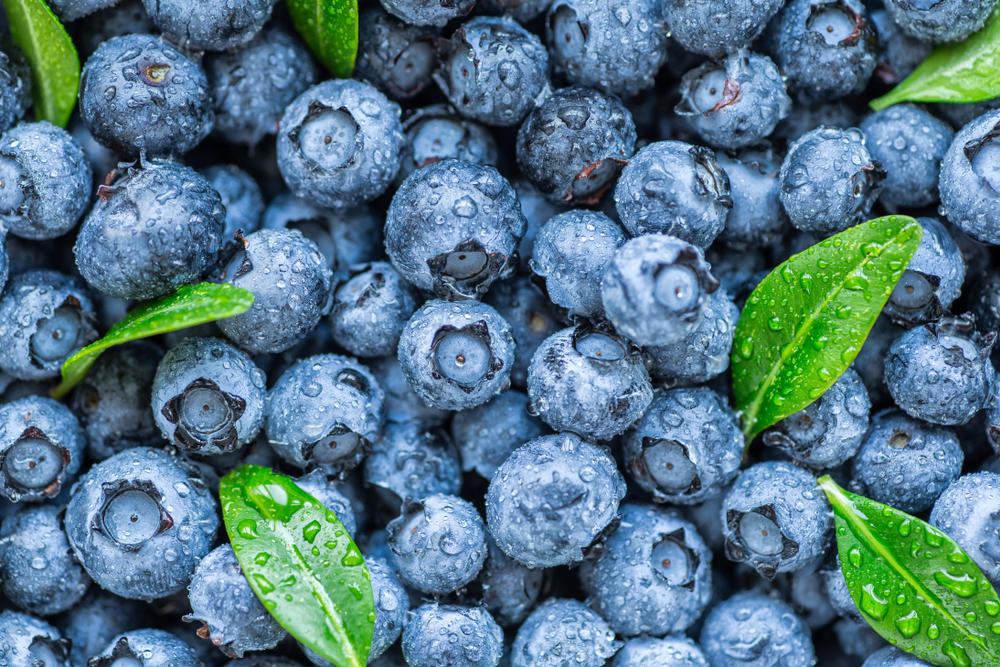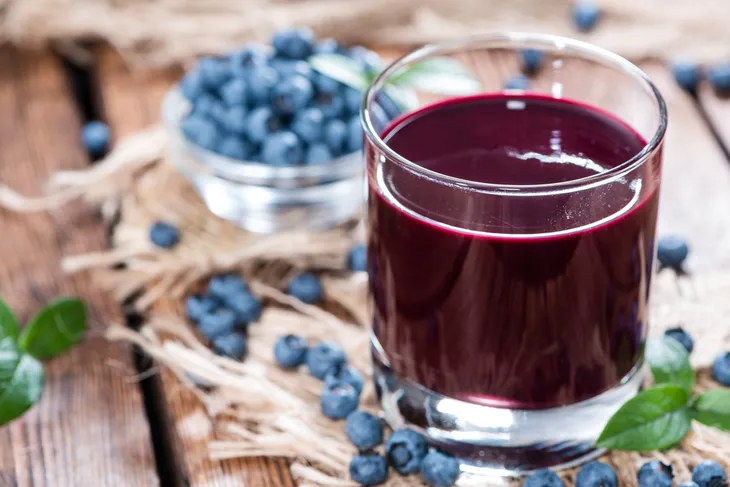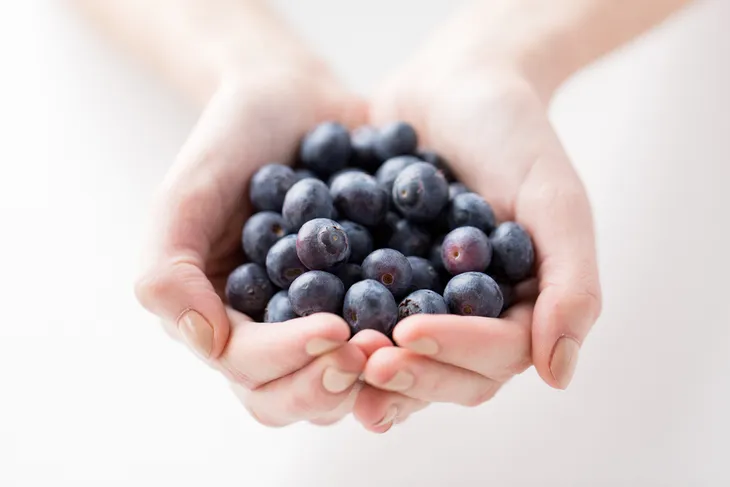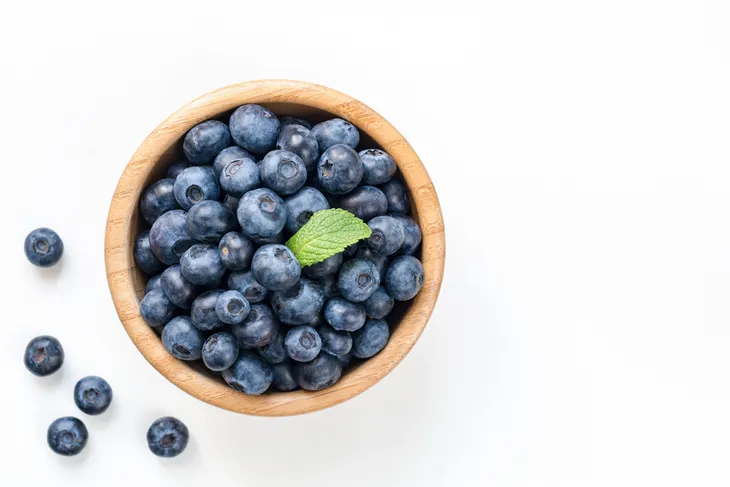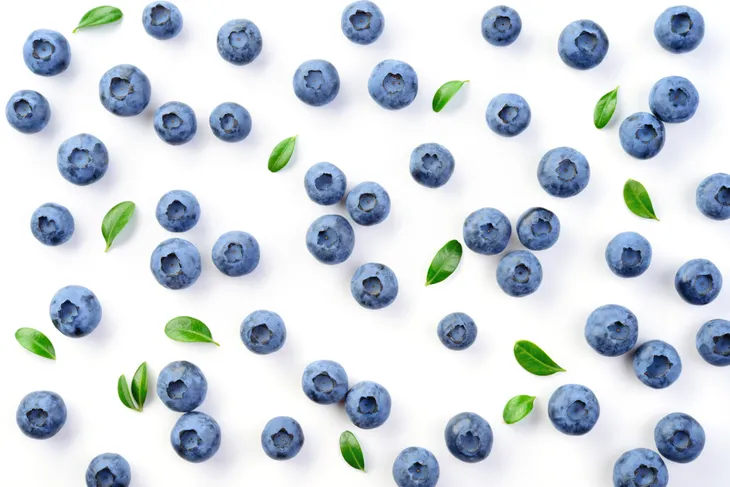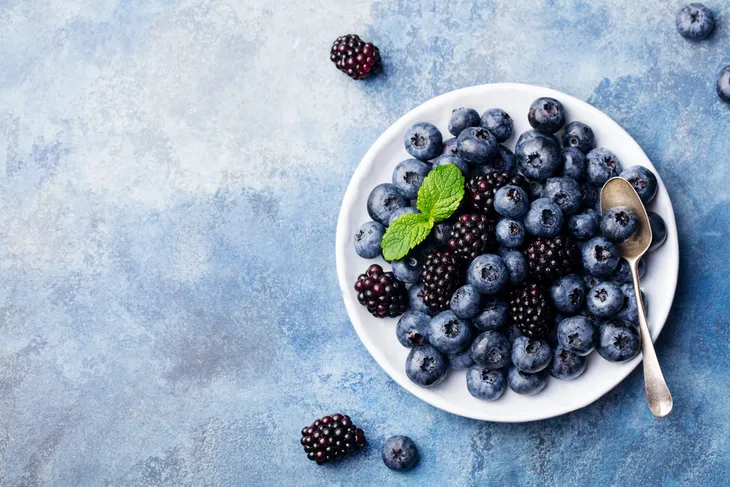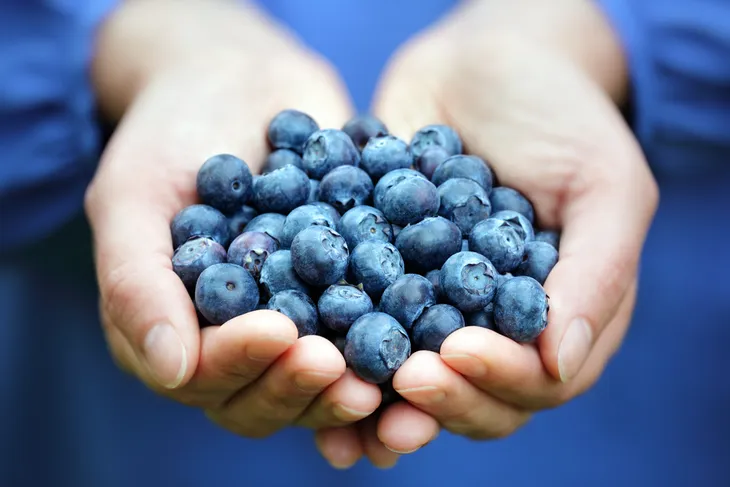Blueberries are delicious – there aren’t many people that would argue with that point. However, beyond being a tasty (and low-calorie) snack or an additive to a salad, there are many health benefits of the little blue berries that takes their status to the next level. It’s no mistake that blueberries are called a “superfood” thanks to its many healthful qualities that range from nutrient content to containing cancer-fighting agents and more.
Antioxidants A-Plenty
Antioxidants in foods have been touted to slow free radicals in the body, which have been linked to cancer and other health issues. When it comes to antioxidants, blueberries are at the top of the list for capacity among both fruits and vegetables, according to Healthline.
The main types of antioxidants in blueberries are called flavonoids (in particular anthocyanins that contribute to the color), and the source also adds that there’s direct evidence that antioxidant levels in the body increase with blueberry consumption.
Anti-Aging Properties?
Healthline also touts the ability of blueberries to slow DNA damage from free radicals, which is a daily reality for all of the cells in your body. This is one of the main reasons people show signs of aging, adds the source. This is again thanks to the antioxidants already mentioned that can reduce the risk of cancer.
The source cites a study that shows oxidative DNA damage from free radicals was reduced by 20-percent from drinking a liter of blueberry juice per day for about a month. Meanwhile, other sources note that the vitamin C content in blueberries helps prevent skin damage from sun exposure by boosting collagen.
Naturally Lowering Blood Pressure
High blood pressure has been called “the silent killer” because it often doesn’t offer any clues through symptoms. This is why it’s important to have regular checks by your doctor, especially if your family history points to hypertension.
However, you might be able to keep your blood pressure in check by popping blueberries (as well as any blood pressure medications your doctor prescribes), according to Huffington Post. The same antioxidants that fight off disease are credited with this benefit by the source.
They Can Fill You Up Without The Calories
When you’re reaching for a snack, it’s easy to grab some potato chips or a candy bar. But both of those items contain quite a high level or calories – for example, potato chips weigh in at around 536-calories per 100-grams (not to mention the high sodium content).
Blueberries, on the other hand, have only 80-calories per cup (which is the equivalent of 128-grams), according to Good Housekeeping. Sugary and starchy snacks can actually cause you to crave more, but blueberries can fill you up and curb appetite thanks to their fiber content, it adds.
They May Improve Brain Health
The Huffington Post cites research that explains blueberries might be able to improve age-related memory loss (again thanks to the flavonoids). They may also help combat the devastating effects of dementia (including Alzheimer’s disease), which becomes a bigger threat with aging, adds the source.
The study looked at a group of adults who were 68-years or older who had been diagnosed with “mild cognitive impairment,” which it says is a warning sign of developing dementia. After being given blueberry powder or a placebo for 16-weeks, the group that consumed blueberry powder showed “improved memory and improved access to words and concepts,” notes the source.
Limiting Damage To Cholesterol
There are two types of cholesterol in the body: good (HDL) and bad (LDL). Oxidative damage that can affect cells can also negatively impact your bad cholesterol, which can be a risk to developing heart disease, explains Healthline.
The (you guessed it) antioxidants in blueberries have been linked with a reduction of LDL cholesterol, notes the source. In fact, the source cites research that shows 2-ounces of blueberries per day over an 8-week period reduced LDL oxidation by 27-percent in obese subjects. Similar positive effects have also been shown when eating blueberries as part of a main meal, it adds.
They Can Provide an Energy Boost
Blueberries have a high fiber content – about 2.4-grams per 100-gram serving. But while fiber is an important aid in digestion and helps to keep you “regular,” it’s not the fiber itself that gives you the energy.
Good Housekeeping explains that the soluble and insoluble fiber content slows down the rate of digestion, which leads to a more steady release of sugar into your blood that will give you a longer-lasting boost than a hit of sugar from another source. This also makes blueberries ideal for diabetics who want a tasty treat without spiking their blood glucose.
Maintaining Bone Health
People often think of milk and dairy products when it comes to building stronger bones. But what some may not know is that blueberries contain calcium – the ingredient in milk that is linked to healthy bones and growth.
There are other elements of blueberries that are linked to bone health, according to Medical News Today. Among them are iron, phosphorous, magnesium, and zinc, notes the source. Blueberries also have vitamin K content, which is important because low levels in the body have been associated with a higher risk of bone fractures, it adds.
Fighting Off UTIs
If you’ve ever had a urinary tract infection, then you’ll know how uncomfortable they can be – but you’ll also want to know that blueberries may help prevent another one. Healthline says that while cranberry juice is usually the go-to for many people to avoid a UTI, blueberries have similar benefits.
The source notes blueberries and cranberries contain “anti-adhesives” that keep harmful bacteria from latching on to your bladder walls, which is helpful in preventing an infection in the first place, it adds. (When it comes to treating a UTI that already exists, you may want to consult a doctor about antibiotics).
